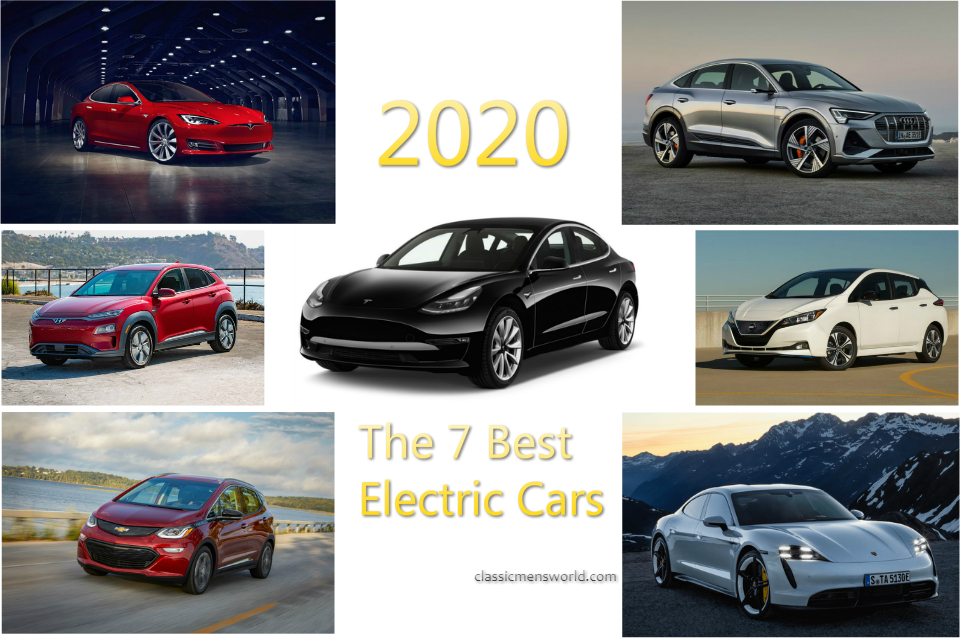The best electric cars are stylish, environmentally friendly and comfortable to drive.
The best electric cars of 2020 come in all shapes and sizes, from compact to luxury, and they come with the same price tags as traditional gasoline-powered cars.As more and more people drive electric cars, it’s getting easier to find charging stations.The most exciting vehicles on the market aren’t million-dollar supercars, wide-shouldered trucks or seven-seater SUVs.No, the car the world can’t wait to drive is an all-electric sedan from a small carmaker called Tesla.Tesla may have captured the imagination of consumers with its futuristic and expensive cars, but mainstream carmakers have long been trying to crack the electric car conundrum with increasing success of late.
These affordable electric cars have enough range to allow most people to pass through their daily commutes, and all the features you’d expect from a modern car.Luxury electric cars bring advanced driving power and upscale design to the EV level.Right now, not many luxury car makers are using all-electric cars on the road, but that will change in the next few years.While Tesla models dominate today’s market with their incredible speed and futuristic technological features, more intense competition is just around the corner.
Today’s best electric cars appeal to the commuter marketing.They are practical, easy to drive, cheap and high-tech.But buying an electric car requires a different mindset.Petrol cars can be refuelled in minutes, while electric cars take longer to recharge, making them less suitable for long-distance driving.The trick is to consider how far you drive on average each day, and how often you have a chance to recharge.If you can charge it at work or at home, electric cars might be perfect for your life.
To simplify your shopping process, we’ve compiled a list of the best electric cars on the market right now.The list includes only those vehicles that have been certified by the EPA.
1. Tesla Model S Performance
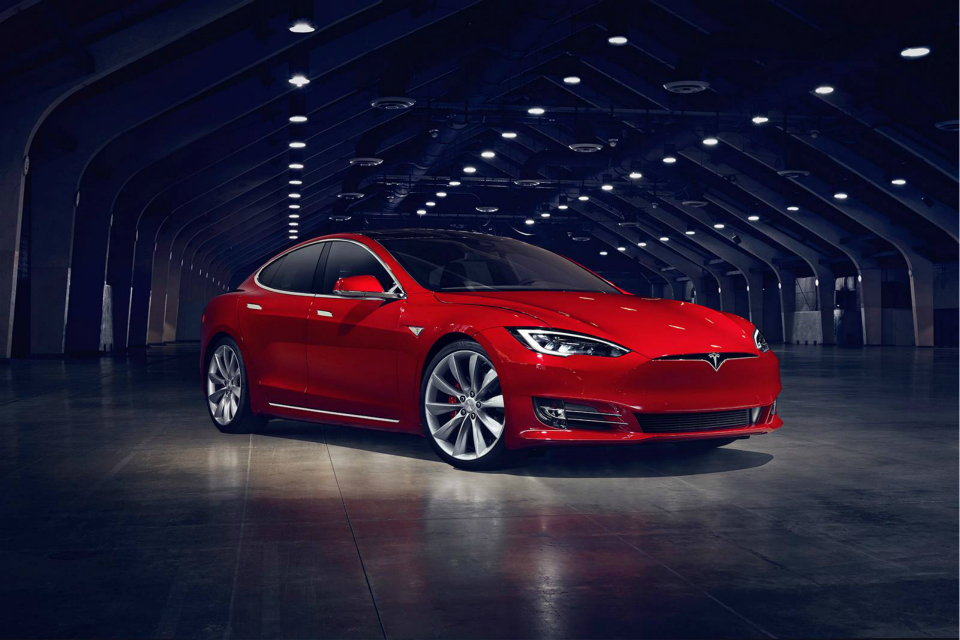
Best performance electric car. There’s no denying the Model S is a mightily impressive achievement – and from a company whose only previous credit was a Lotus Elise-based roadster.
A usable amount of range, decent handling and plenty of tech-y appeal, the Model S has made the mainstream manufacturers sit up and take notice.
If we judge only according to the ability, then Tesla Model S will undoubtedly be our choice to choose the best electric car.Although we live in the real world, and prices start at over $90,000, the fact remains that many people simply cannot afford to drive the new ModelS.But if, like Porsche, you can lower the base price and are looking for fast, comfortable, and non-emission products, then the top Model S Performance with the optional Ludicrous Mode is right at your alley.With its 100 kWh battery, the Performance’s time from zero to 60 is just 2.4 seconds, making it one of the fastest production cars on earth.
2. Tesla Model 3

Best electric car overall. The Tesla Model 3 is the best-selling electric car on the market right now.In fact, it has outsold many of its gas-powered rivals.This is partly due to its exciting performance, superior range, impeccable crash-test ratings, and cutting-edge technical features.So far, everything Tesla has done has been for the Model 3, a truly affordable mass-market electric car.
The Tesla Model 3 is slightly stylish on the outside, luxurious on the inside, insanely fun to drive, and offers a range of 322 miles to check all the right boxes.But this is only the beginning.What’s really impressive about the Model 3 are its innovative convenience and safety features (including some of the industry’s best semi-autonomous driving AIDS) and future-oriented technology.The Range of the Model 3 is a bit hard to keep up with, and your options are constantly changing.It currently has two options: an entry-level single-motor car with rear-wheel drive that has a range of 260 miles and goes from 0 to 60 MPH in 5.6 seconds.The program starts at about $35,000, including government incentives.
Then there’s the dual-power car, which is four-wheel-drive and comes with a longer battery that allows it to travel 310 miles between charges.The car starts at $41,200, but if you pay another $11,000, it comes with a performance version that goes from 0 to 60 MPH in 3.3 seconds, has a top speed of 155 MPH, and improved brakes.You’ve probably heard the headlines: The Model 3 is about half as cheap as the Model S and Model X;More than 500,000 paid bookings;That’s key to Elon Musk’s mission to get us off the fossil fuel path (before we all go to Mars), and it’s a sore point for Him as his company tries to ramp up production to build 500,000 Model 3 cars a year.It’s no secret that he had some trouble getting there.
While the Model 3 is the cheapest Tesla you can buy, the $36,200 standard version is available only with special orders from Tesla stores;The cheapest version available online is the standard price of $39,190.
3. Nissan Leaf
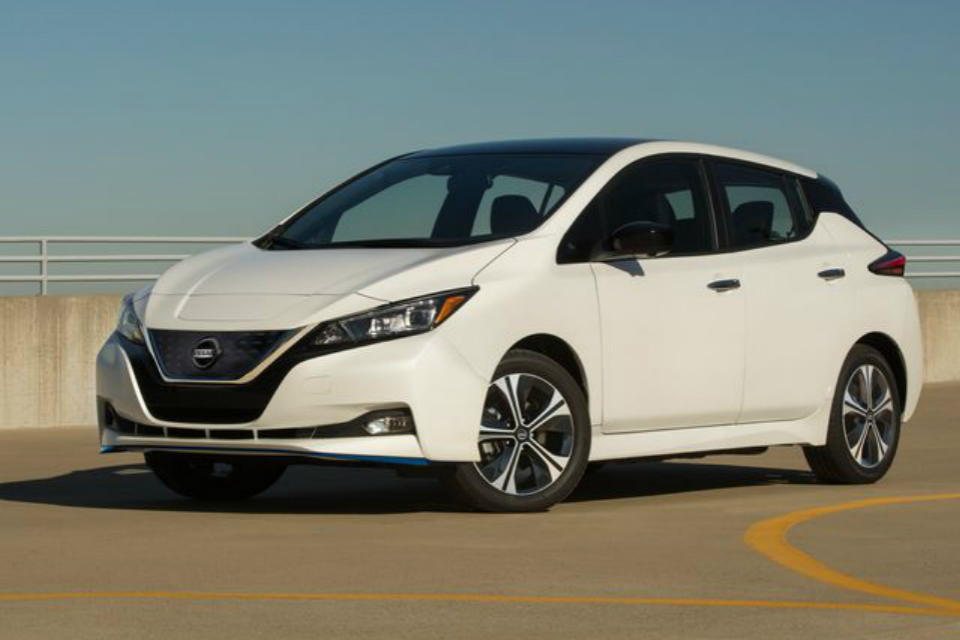
Best affordable electric car. If you crave a quiet and comfortable all-electric driving experience with lively acceleration, the Nissan Leaf will leave you smiling.
Yes, the granddaddy of all cheap electric cars.There’s a reason the Leaf is the world’s best-selling electric car.If you’ve spent time in it lately, you’ll know why.The Nissan Leaf is one of the most comprehensive electric cars on the market.It is reasonably priced and can be used immediately throughout the country.One of the first to take the electric plunge, the Nissan Leaf now looks a lot better and goes a lot further:168 miles between top ups. At one point, the old Leaf was selling more than the combined sales of all other electric vehicles.
The Nissan Leaf was praised for its spacious interior and spacious cargo area.It is the cheapest battery-electric car on the market.If you have a particularly long commute, or if you want to take a short road trip, you can opt for the new Leaf Plus model ($33,550), which gets 226 miles on a single charge.But the real joy of the Leaf isn’t the money, it’s the motor, and its charming grace. For the way most people drive (if not, literally, For Petrolheads), it’s simply a better source of motion.Nissan caused a stir when it introduced the original Leaf in 2010.The second-generation Leaf isn’t as brutal as its predecessor, and while it still doesn’t qualify for the coveted “remote” label, it is far more useful than its predecessor.If that wasn’t enough, Nissan also offers a more expensive model, the Leaf Plus, with a range of 226 miles, thanks in part to the larger 62kwh battery pack.
The recently redesigned Nissan Leaf is a better electric car than the previous generation.It’s quieter, more comfortable, more valuable to drive, and it offers enough range for almost any commute.However, the Leaf’s steering wheel lacks telescopes, which makes it uncomfortable for taller drivers and gives it a poor feel for the road.But, overall, the advantages of the Leaf far outweigh the disadvantages, especially if you don’t need the top range of charts that Kona and Bolt offer.If you do, consider the Leaf Plus variant that boosts mileage to a competitive 226 miles.
4. Chevrolet Bolt EV
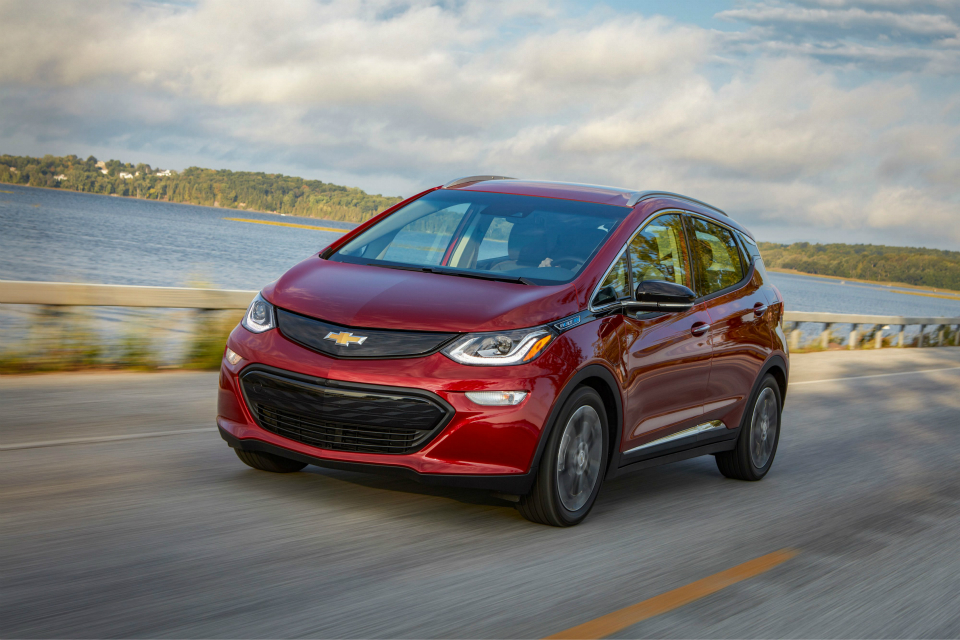
Best long-range electric car alternative. Want an electric car with enough space, functionality and driving range?The Chevy Bolt EV boasts all of these and more with a sleek hatchback design.
In 2020, we finally have an electric car for almost everyone: the Chevy Bolt EV.It’s the first affordable electric car worth a road trip.Before the Nile and Kona, it was the only non-Tesla car with an electric range of about 250 miles.
Practicality and affordability are just two elements of a good car, but thankfully Bolt has more.While we prefer the more expensive Model 3, the Bolt EV is an excellent alternative.The Chevy Bolt EV has a commendable range, strong acceleration, maneuverability and a spacious interior.It offers adult-friendly accommodation in both rows, though Bolt’s cockpit is less upscale than many competing models, and its seats don’t support long-distance travel.The bolt has a fairly large cargo hold thanks to its hatchback configuration.
The Bolt EV has a total output of 200 horsepower and 266 pound-feet of torque, making it very agile.Taking into account the low center of gravity provided by a floor-mounted battery pack, you have a grown, stable and responsive means of transporting people without having to visit a gas station.Add in a roomy and comfortable cabin, a standard 10.2-inch touch screen, and DC quick charging options, and you’ll have a real industry changer to drive.It is available in all 50 states, and there is no waiting time to get one.
5. Audi E-Tron
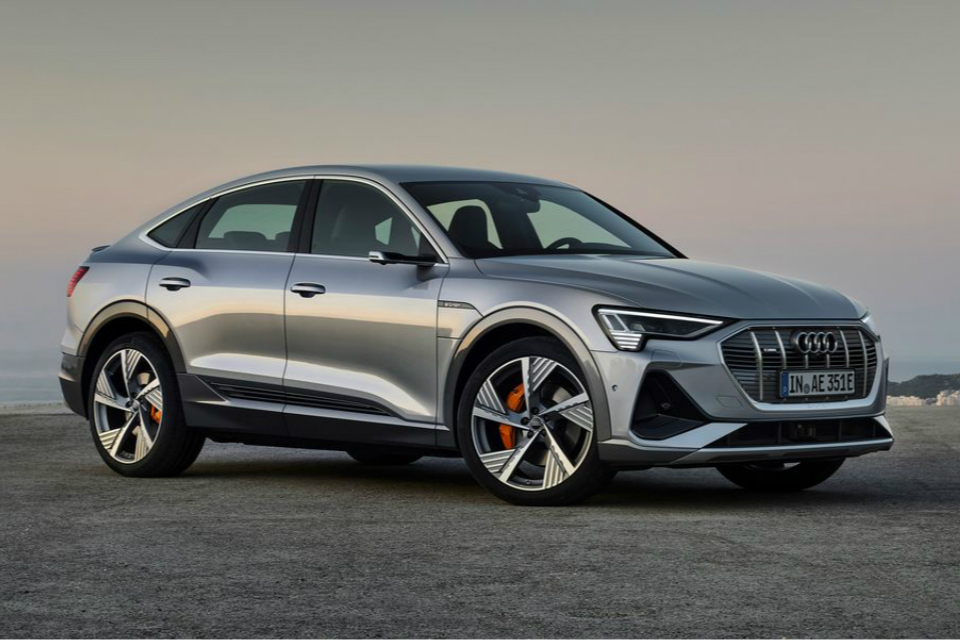
Best electric crossover/SUV. Audi has beaten its rivals Mercedes and BMW in electric SUVs by showing a stunning vision.
Audi’s response to its new all-electric crossover is neither as stylish as the Jaguar I-Pace nor as innovative as the Tesla Model X.Instead, the e-tron, launched in 2020, is intended to amplify the advantages of electric cars through more traditional packaging, reflecting Audi’s luxury pedigree.The E-tron is the new Audi, injecting new life into the values that have defined the German brand for decades.This is a model worth watching because it paves the way for future Audi electric models.
The basic idea is to create a great electric car, not the only car that sells on batteries.Internally, it shares its dual-screen MMI touch response infotainment system with other members of the Audi family, including the Q8, A6 and A7.It’s intuitive to use, looks good, and responds quickly to touch input.The Audi E-tron hits all the high notes you’d expect from a five-passenger luxury SUV, and adds to the benefits of electric cars.It’s roomy, very comfortable, full of technology and smooth on any road.
While the E-tron’s range and acceleration haven’t reached the heights of some of its competitors, Audi has done a lot of work on the battery pack to ensure long life and continued fast charging.If you want a sophisticated SUV, the Audi E-tron offers the best luxury experience of any electric car we’ve rated.While a range of more than 200 miles is hardly a breakthrough, Audi believes it is enough for most daily commutes.The luxury liner, equipped with the most advanced technology, is further proof that the 2020 E-tron is more interested in making electric cars more popular than advancing them.
6. Hyundai Kona Electric
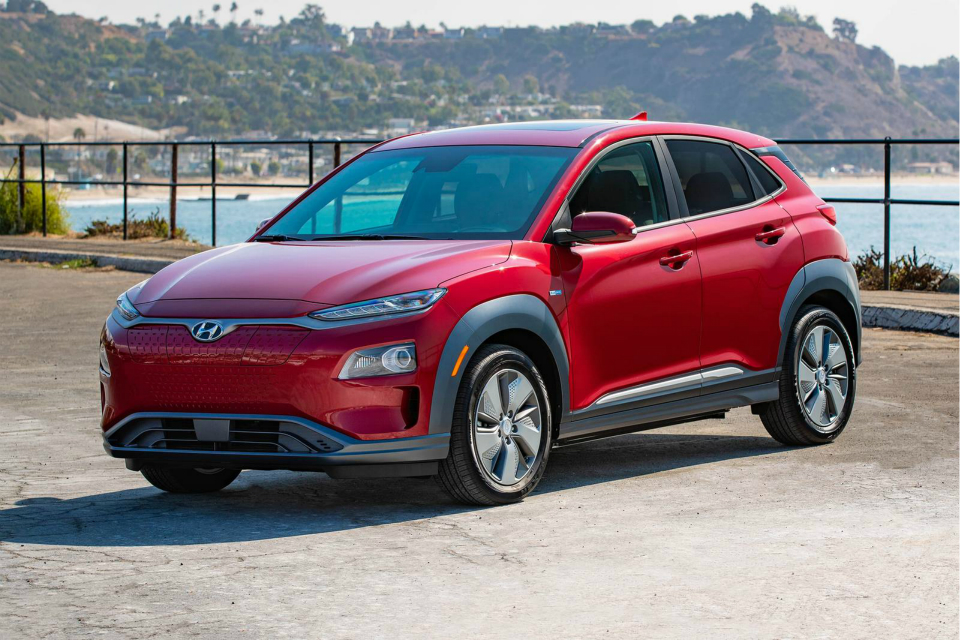
A proper tipping point BEV: genuine 300-mile (ish) range in a small SUV for under £30k. Consider it.
An electric SUV with a 279-mile range and a long waiting list. There’s a five-year unlimited-mileage warranty, smartphone connectivity and a touchscreen infotainment system.Hyundai KonaEV drives much faster and more fun than you might expect, and its 258-mile range puts it in the top tier of modern battery-electric cars.It starts at $36,990. You’re a excellent quality and reasonable price.
Hyundai Kona electric cars have taken the field by storm since their debut last year.Its jaw-dropping range rivals higher-priced luxury models, and its interior is a pleasant place to kill time as you accumulate miles.
The Hyundai Kona electric car owes its excellence to its stellar range, instantaneous acceleration, and pleasant ride.Kona Electric has an impressive array of standard features, such as a 7-inch touch screen, Apple CarPlay, Android Auto and a variety of advanced driving-assistance technology.The higher trim level provides good performance, such as battery heaters, which help Kona charge faster and maintain range in cold weather.Although the battery-powered Kona has not yet been evaluated separately, the gas-powered Kona has scored very good safety scores and an above-average predictive reliability rating.
7. Porsche Taycan
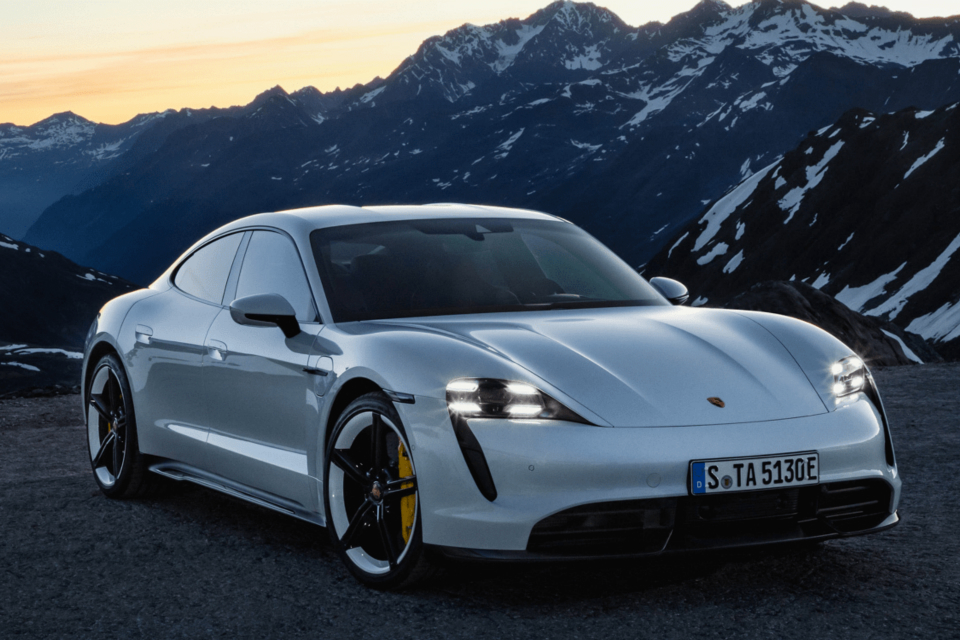
Best luxury electric car. It’s essentially the Porsche of electric cars.
Porsche is synonymous with performance, and Taycan is not disappointing.Even the basic Taycan 4S can achieve speeds of 0 to 60 MPH in 3.8 seconds, compared to 2.6 for the high-end Turbo S.
Porsche has incorporated the best technical features of its existing model of the internal combustion engine into the German manufacturer’s first all-electric Taycan.
But Taycan is not just designed to be straight and fast.Like other four-door Porsches, Taycan also comes with adaptive air suspension and lots of electronic AIDS, so any driver can take full advantage of it.Buyers can also get three large dashboard screens and an 800-volt DC quick charging system, which can complete 80 percent of the charge in 20 minutes.
Taycan does have one drawback, which is range.Depending on the model you choose, its EPA estimates range from 192 miles to 203 miles per charge.When you get a Tesla Model S with a range of more than 300 miles, 203 miles seems low for a six-figure EV.In theory, Taycan is the first vehicle to truly challenge the Tesla Model S.In fact, both Porsche and Tesla have unique advantages that should make the decision easier for buyers.The Model S has a much higher range, but our actual tests show it has only a slight advantage over a Tarkaan turbo.The Model S is more practical and has access to a vast network of fast-charging stations.
The electric car market is growing, offering serious drivers like you more options than ever before.From luxury four-door models to utilitarian compact models, there’s a battery-powered car that can satisfy your driving needs, whether you’re heading to the office, carpooling with your kids, or running your errands.
Common electric vehicle terms you may not know
AC: Short for alternating current. This type of electric current reverses direction at regular intervals and is very efficient. Most modern electric cars, such as Teslas, use AC.
DC: Short for direct current. This type of electric current stays constant in its direction. DC electric motors are generally simpler and cheaper than AC electric motors, but they are less efficient.
EV: Short for electric vehicle.
Fast charge: Fast chargers utilize a higher current than a standard domestic outlet. For example, a Tesla Supercharger can charge a 90kWh Model S to 80 percent in 40 minutes. In a standard outlet, the same process would take a few hours.
kWh: Short for kilowatt-hour.
Lead Acid Battery: An older style of battery that uses lead and sulfuric acid to transfer and store energy. They are much cheaper than Lithium-Ion batteries but have a shorter service life.
Lithium-Ion Battery: Often shortened to Li-Ion, batteries of this type are common on modern electric cars and use a compound called lithium-cobalt oxide to transfer and store energy.
MPGe: Short for miles per gallon (of gasoline) equivalent. To calculate MPGe numbers, the U.S. Environmental Protection Agency (EPA) calculated that there are approximately 115,000 BTUs of energy in one gallon of gasoline, and used that formula to convey the amount of power an electric car uses in terms most drivers are familiar with.
Nickel-Metal Hydride Battery: Often shortened to NiMH, batteries of this type are found on some older electric cars, however, most automakers prefer Lithium-Ion.
Regenerative braking: A system that uses energy created by braking to refill the battery.

